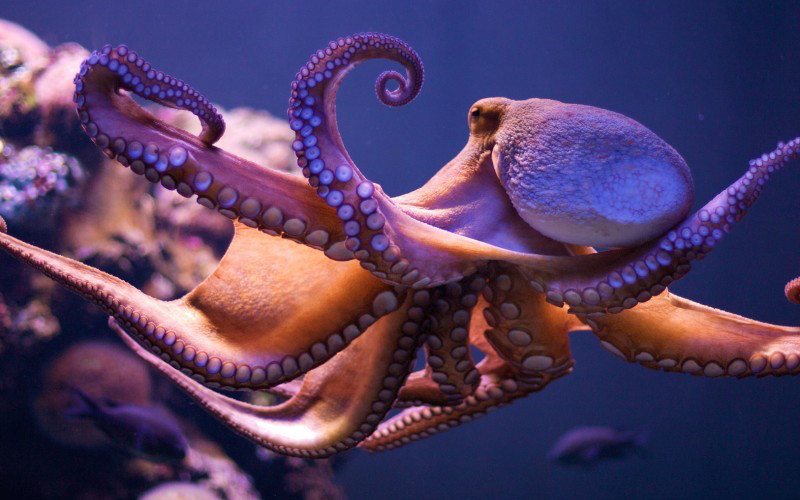Octopus
Episode #3 of the course “The Smartest Animals on Earth“
Octopuses (or “octopi”) are the most intelligent invertebrates, with an interesting nervous system that is very different from humans. They have the highest brain-to-body mass of all invertebrates, as much of their nervous system exists in their skin. Researchers argue over what “intelligence” means in terms of an octopus, but they agree they the octopus’ navigational skills, ability to camouflage, and use of predatory tactics signify the ways in which octopuses are intelligent.
Octopuses can be sneaky, stalking and stealing prey. They also react to their surroundings and can make themselves blend in with rocky, sandy, coral, or watery environments. In addition, they may change their skin patterns according to mood or by choice. An octopus will mimic the look and movements of another creature to defend its territory. It will also choose when to blend in with its surroundings to hide out or to hunt. Octopuses send messages to one another via color patterns on their skin.
Octopuses make the most of their eight legs. They are skillful at manipulating tools and the landscape, swimming in the styles of other fish or predators and pulling their way quickly along the sea floor. They create extensive mental maps of territory and have been shown to remember environments once they return to them after years of absence. Octopuses have long memories and strategize well.
Sometimes in captivity, they cause disruption to the aquarium facilities and destroy property in strategized attacks—an octopus once caused electrical problems when he repeatedly crawled out of his tank and attacked a nearby lamp by squirting jets of water at it.
Share with friends

